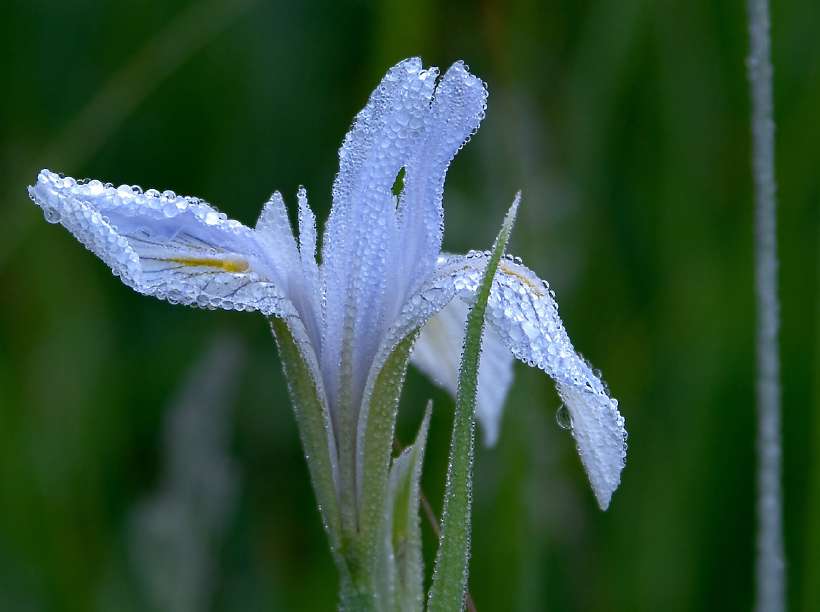Remember walking to the school or the bus stop on a cold wintry morning? You can see the beautiful crystal drops of dew, and if you happen to be on the grass, they could well be soaking your shoes.
Ever wondered why there is no dew in the summer or rainy seasons? Well, special as it looks, dew needs special conditions to form as well. When a warm and clear day is followed by a cool evening and night, which is clear (cloudless), dew is formed.

On a clear day, water evaporates from the warm ground into the atmosphere. When night falls, the ground radiates the day’s warmth into the skies. The ground becomes much cooler, causing the water vapour to condense. This condensed vapour is dew.
On a cloudy night, the clouds send the heat back to the ground so the ground never gets cold enough for the dew to be formed.
When the nights get colder, this dew gets transformed into frost.
One may also wonder why dew does not get formed on the soil of the flower beds. The answer is that the plants in the bed keep the ground warm.
So, unlike raindrops, dewdrops don’t fall from above. They are formed on the ground itself.
213 words |
2 minutes
Readability:
Grade 4 (9-10 year old children)
Based on Flesch–Kincaid readability scores